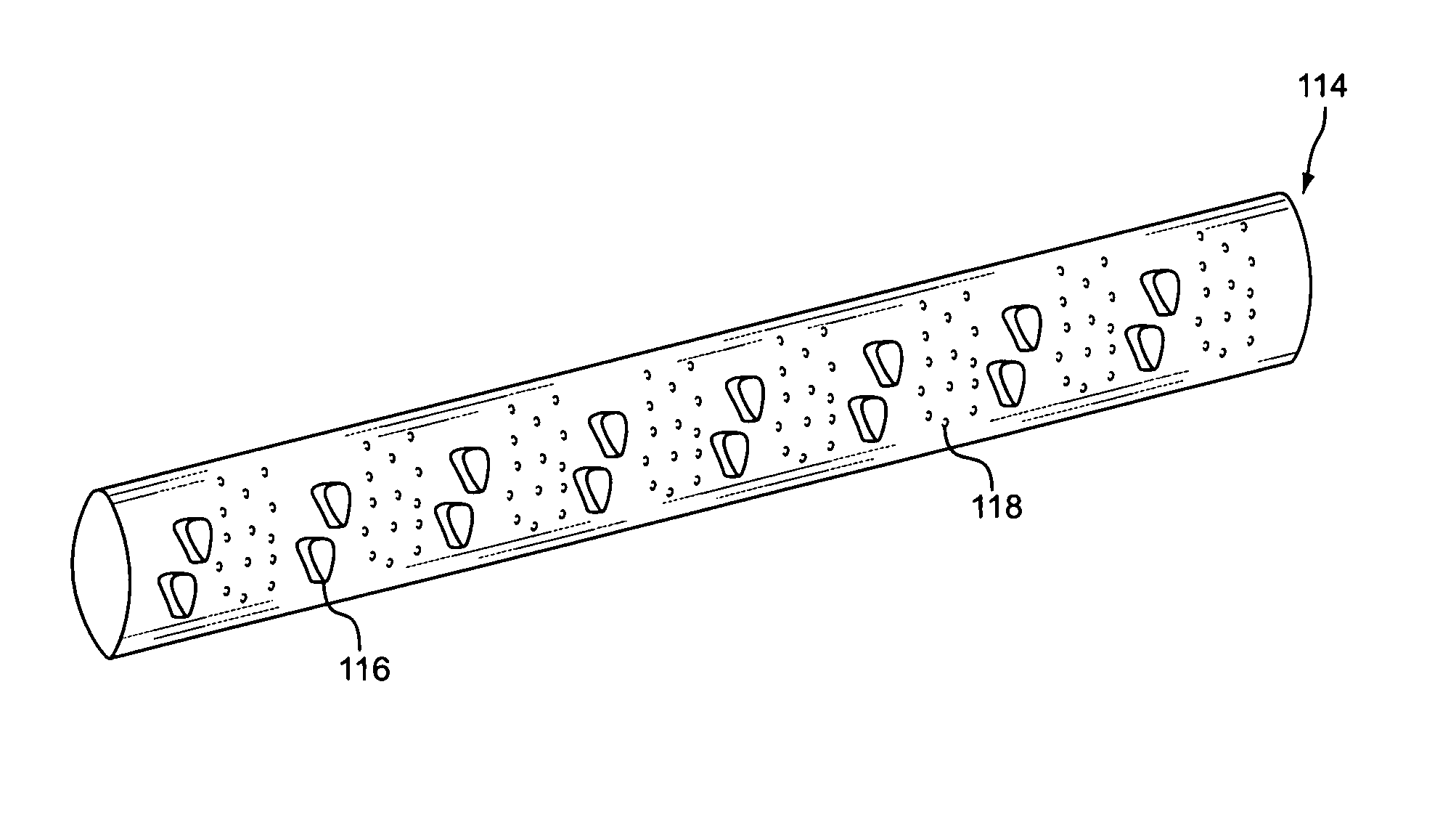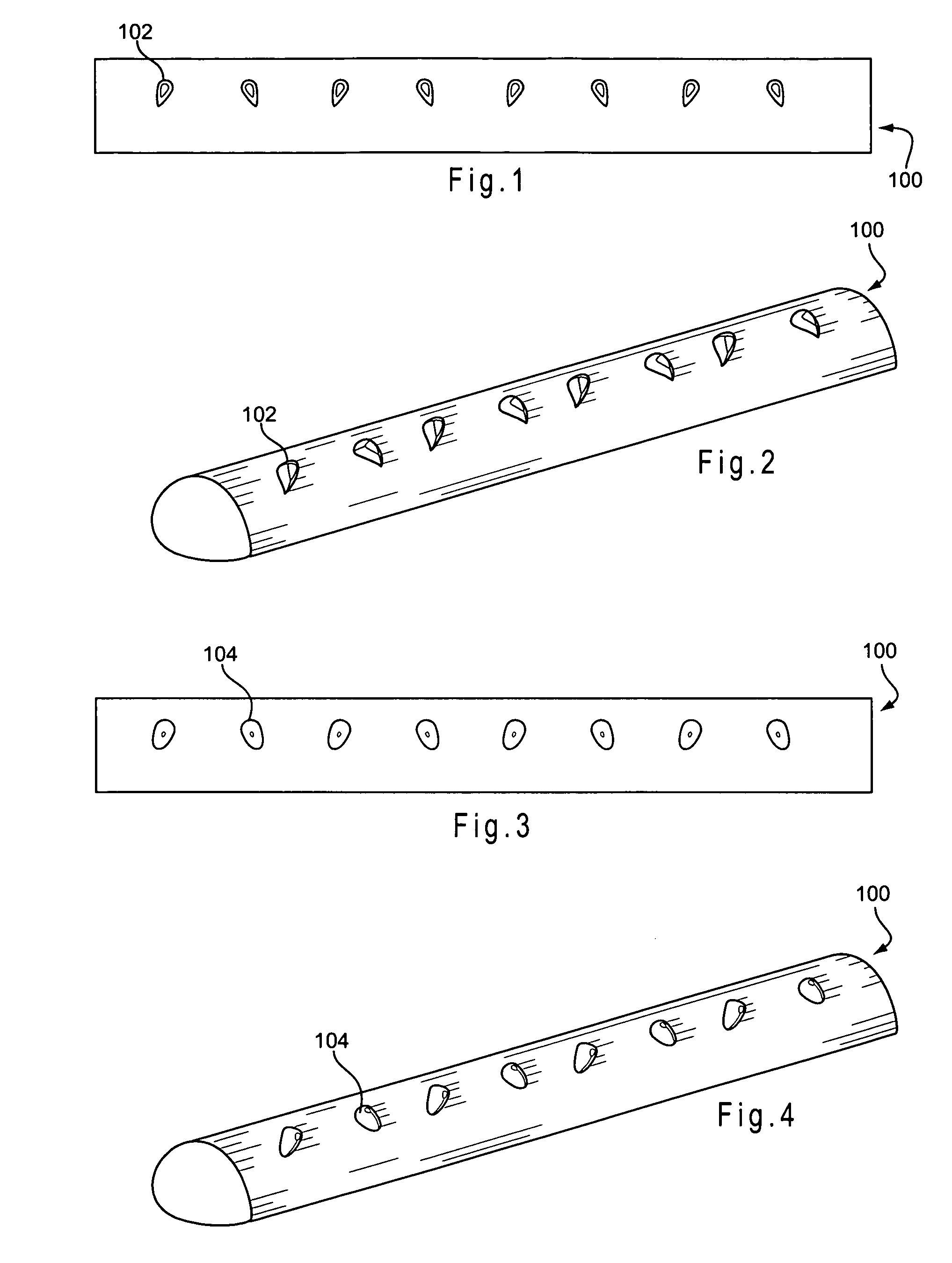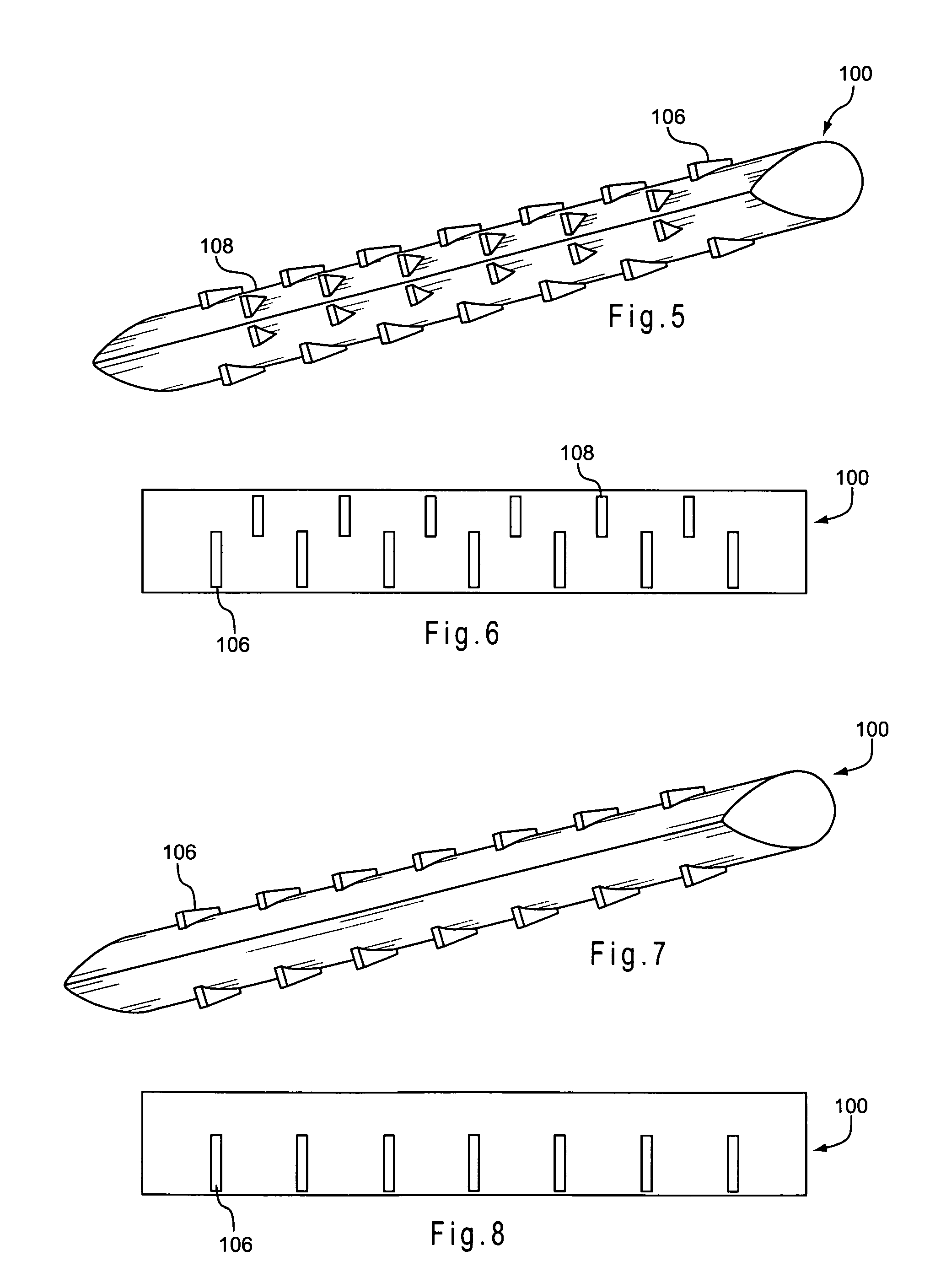Wake generating solid elements for joule heating or infrared heating
a solid element and wake generation technology, applied in immersion heating arrangements, lighting and heating apparatus, furnaces, etc., can solve the problems of deficient current resistance heating wires, high production costs, and many other problems, and achieve the effect of reducing drag and pressure drop
- Summary
- Abstract
- Description
- Claims
- Application Information
AI Technical Summary
Benefits of technology
Problems solved by technology
Method used
Image
Examples
Embodiment Construction
[0135]This invention is a substantially new way to look at solid heat transfer elements placed in a fluid stream for the purpose of efficient surface heat transfer to the fluid stream via forced or natural convection. The solid heat transfer elements of the present invention are in contact with only one fluid flow. The fluid is moved by means of fans, propellers, gravity, suction or other mechanical means of moving air or gases, or by natural convection. The solid heat transfer element's source of heat comes from electricity, not mechanical energy, the solid element being heated by resistance to electric flow passing through it, by absorbing infrared radiation from a source external to the solid heat transfer element, typically an infrared emitting lamp, or by absorbing radio wave electromagnetic radiation, typically from a magnetron. The present invention utilizes vortex generators to increase heat transfer. Specifically, the use of vortex generators, also known as turbulators, inc...
PUM
| Property | Measurement | Unit |
|---|---|---|
| angle | aaaaa | aaaaa |
| angle | aaaaa | aaaaa |
| angle of attack | aaaaa | aaaaa |
Abstract
Description
Claims
Application Information
 Login to View More
Login to View More - R&D
- Intellectual Property
- Life Sciences
- Materials
- Tech Scout
- Unparalleled Data Quality
- Higher Quality Content
- 60% Fewer Hallucinations
Browse by: Latest US Patents, China's latest patents, Technical Efficacy Thesaurus, Application Domain, Technology Topic, Popular Technical Reports.
© 2025 PatSnap. All rights reserved.Legal|Privacy policy|Modern Slavery Act Transparency Statement|Sitemap|About US| Contact US: help@patsnap.com



